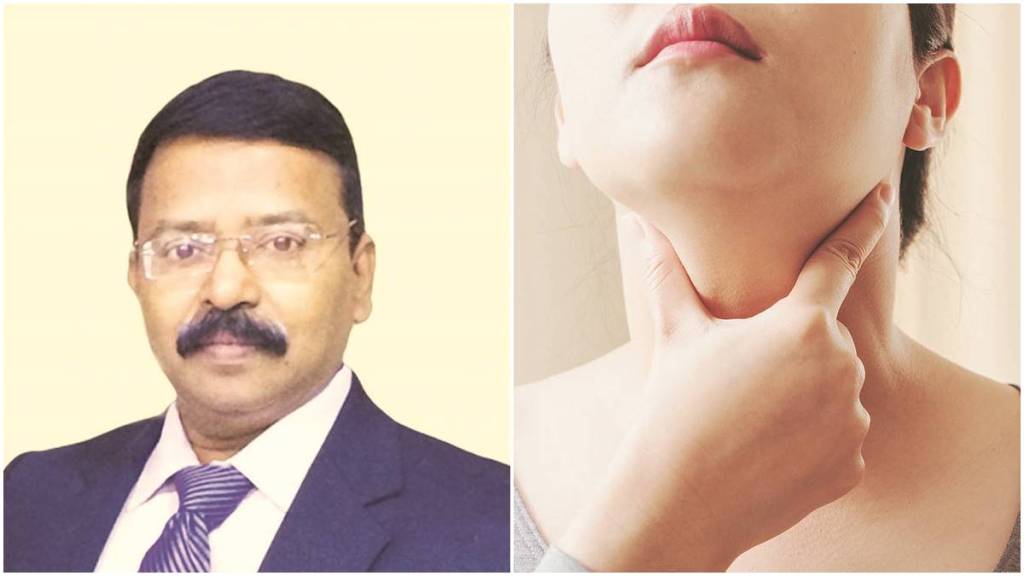Clipped from: https://www.financialexpress.com/lifestyle/health/the-doctor-is-in-heres-what-you-must-know-about-thyroid/2662257/
How important is the thyroid gland and what are the signs to look for when it malfunctions
 Thyroid can be enlarged in any condition like hyperthyroidism, hypothyroidism and euthyroid condition.
Thyroid can be enlarged in any condition like hyperthyroidism, hypothyroidism and euthyroid condition.
By Dr Rajesh Vishwakarma
What are the signs to look for in a malfunctioning thyroid gland?
Hypothyroidism (deficiency of thyroid hormone): weight gain, fatigue, neck swelling, increased sensitivity to cold, constipation, dry skin, puffy face, hoarseness, muscle weakness.
Hyperthyroidism (excess of thyroid hormone): neck swelling, weight loss, even when appetite and food intake stay the same or increase, rapid heartbeat (tachycardia)—commonly more than 100 beats a minute, irregular heartbeat (arrhythmia), pounding of your heart (palpitations), increased appetite, nervousness, anxiety and irritability.
Also Read: Monkeypox vaccine expected to induce strong immune response: Study
What are functions of thyroid gland?
It plays a major role in the metabolism, growth and development of the human body. If the body needs more energy in certain situations—for instance, if it is growing or cold, or during pregnancy – the thyroid gland produces more hormones.
Regulating the rate at which your body uses calories (energy). This affects weight loss or weight gain and is called the metabolic rate.
Slowing down or speeding up your heart rate.
Raising or lowering your body temperature.
Influencing the speed at which food moves through digestive tract.
Affecting brain development.
Controlling the way your muscles contract.
Managing skin and bone maintenance by controlling the rate at which your body replaces dying cells (a normal process).
Is all hyperthyroidism Graves’ disease?
No all hyperthyroidism are not Graves’ disease. Thyroid can be enlarged in any condition like hyperthyroidism, hypothyroidism and euthyroid condition. Treatment can be in form of medication, radioiodine therapy and surgery. In medication we can give antithyroid agent and beta blocker. Radioiodine therapy is a common and effective treatment.
Ablation depends upon the size of thyroid gland and whether it is putting compression over nearby vital organs like trachea and esophagus, which can lead to breathing difficulty and difficulty in swallowing.
Can artificial hormones completely replace natural thyroid hormones in case of patients with ablation? If not, in what way are such patients compromised?
No, regular monitoring is needed. Patient has to take lifelong medications. Synthetic form of thyroid hormone is given.
Levothyroxine is a synthetically produced form of thyroxine, a major endogenous hormone secreted by the thyroid gland.
Levothyroxine is used primarily to treat hypothyroidism, a condition where the thyroid gland is no longer able to produce sufficient quantities of the thyroid hormones T4 ( thyroxine) and T3 ( liothyronine), resulting in diminished down-stream effects of these hormones. Without sufficient quantities of circulating thyroid hormones, symptoms of hypothyroidism begin to develop.
Dr Rajesh Vishwakarma is professor and head, dept of ENT & head-neck surgery, Apollo Hospitals, Ahmedabad